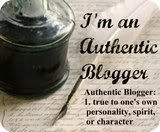Journalists on Twitter can have it tough sometimes, but most of them do a wonderful job of mixing the personal and the professional.
But is there a grey area when it comes to responding to the public regarding stuff that you've reported or written?
The Washington Post seems to think so.
According to Mashable the other day, the Post has told its journalists not to engage the public on Twitter, especially in answering any critics of their work.
It all started with a "controversial guest article online called 'Christian Compassion Requires the Truth About Harms of Sexuality,' by Tony Perkins."
The article was about the large number of recent teenage suicides that occurred after the teens were being bullied for being gay. It talked about homosexuality as a "mental condition" and stuff like that. GLAAD got into the picture, responding on Twitter and on its web site, criticizing the article. One of the Post editors attempted to defend the article by saying it was attempting to address "both sides" of the issue, and GLAAD responded with a tweet saying that there are not two sides to the teen suicide issue.
Shortly after this, a memo went out stating that Post reporters should not be responding to their critics on Twitter, or really to anybody, via their Post accounts.
This sentence in the memo (reprinted on the Mashable article) is especially striking:
"Even as we encourage everyone in the newsroom to embrace social media and relevant tools, it is absolutely vital to remember that the purpose of these Post branded accounts is to use them as a platform to promote news, bring in user generated content and increase audience engagement with Post content."
How exactly are you "increasing audience engagement with Post content" if you're not allowed to interact with people about it? Sure, you can say "thank you!" if somebody says "hey, what a cool article!" But how many people actually do that? Most responses to a post will be in a questioning or criticizing mode.
Vadim Lavrusik, the Mashable writer, puts it beautifully:
"Sure, it makes sense that they should rein in who manages the Washington Post-branded Twitter account, as that could be seen as an “official” response of the company and not an individual. But putting a stop on engagement and conversation regarding Post stories from journalists will only distance those reporters from the very community they are a part of. Perhaps a clarification to “speak on behalf of the Post,” could clear up what is okay for journalists to engage in dialogue. But it is also likely that some journalists will now avoid it altogether. There also seems to be a disconnect in what journalists are encouraged to increase audience engagement with Post content, and not the journalists themselves."
I'm not advocating that journalists get into wild debates on Twitter about their articles; there's something to be said for letting an article speak for itself. But I think the Post is taking this to the opposite extreme.
If all you want is to advertise your content, then remove your journalists from Twitter completely and just set up an auto-feed. Let boredom ensue.
But if you want your audience to be engaged with your content, then let your reporters be engaged too! Enough of this one-way street, or as Lavrusik says, "It only reaffirms the old model of “we publish and you listen,” and a model that had a disconnect from the news process and the former audience."
Then again, maybe the higher-ups don't want this because they're worried the inherent left-wing bias will come out if there's too much engagement. ("Oh, you did not just go there, did you?" - The Peanut Gallery)
Anyway, I'd love to know what you think. Should journalists talk about their articles on Twitter, especially if somebody criticizes them? Or should they just shut up and let their work speak for itself?















I guess it depends on how good they are at holding a temper in and not putting a foot in the mouth. I agree with GLADD that there are no two sides to the suicide issue. So that would be an example of putting a foot in the mouth.
ReplyDeleteThey need to remember, on twitter they don't have editors like they do with their articles. No one to say, hey maybe you shouldn't say that. On twitter they actually have to think before they speak.
That being said, as long as they watch what they say, they should be allowed to say something.
Yeah, avoiding foot-in-mouth disease is a primary requirement for this sort of thing. :)
ReplyDelete